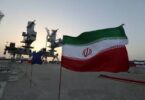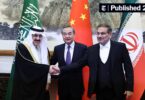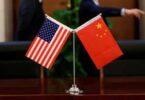Prime Minister’s Advisor on Commerce, Textiles and Production Abdul Razak Dawood has disclosed that European Union has extended Generalized Scheme of Preferences (GSP) plus status of Pakistan till 2022. The facility of zero duty on exports from was granted in 2014 which had given substantial boost to exports to 27 member states of this union. The quantum of exports went up from 4.538 euros to 7.492 euros during the 2013-19. Principle beneficiary was textile sector with increase in cloth and readymade garments followed by leather products.
The drop in oil price from $71 to $41 will certainly decrease the production cost if government pass on proportionate benefit to the industrial sector and honours its commitment of providing electricity at 7 cents per unit and gas at 6.5 cents per mmBtu, the tariffs which ECC is reluctant to approve for four months. After its exit from the European Union, the UK also wants to substantially enhance the quantum and composition of bilateral trade with Pakistan.
The suspension of exports of textiles and other consumers’ goods from China to the European Union, the UK and United States can bring windfall gains for Pakistan if quality of export products is improved; their prices are reduced, and are made innovative. Increase in comparative advantage of value added products can be achieved only when production cost is lowered for which induction of new technologies, reduction in the number of regressive taxes and duties, and lowering of interest rate are inevitable. Currency depreciation against the US dollar and other major currencies of international trade makes our exports less competitive to markets where the facility of zero duty is not available. The only reason is that our export products consume imported raw material and intermediate goods which have become expensive because currency of depreciation. A sustained growth in exports cannot be achieved until a comprehensive long term industrial policy is framed and implemented to facilitate setting up of industries of raw materials and intermediate goods production plus imports substitution. It is quite flabbergasting that despite the clear directives from the Prime Minister, formulation of industrial policy has missed several deadlines.
The composition of exports will remain tilted towards primary commodities including rice, sugar, wheat flour, bakery items, fish and fruits. The exports of these items to European Union can be increased with quality improvement. Extensive and sustained efforts are needed under economic diplomacy to diversify the export market by exploring the potential in South East Asia, Africa and Latin America. The Trade Ministers and Commercial Councilors that are posted in our embassies and diplomatic Missions abroad are not making the required efforts for exports facilitation from Pakistan. At the envoys’ conference held in Islamabad in 2018, Foreign Minister Shah Mehmood Quershi had emphasied the need for pursuing a proactive economic diplomacy. Hopefully, it will be launched without further delay by making new trading partners and negotiating favourable terms of bilateral trade with them.






